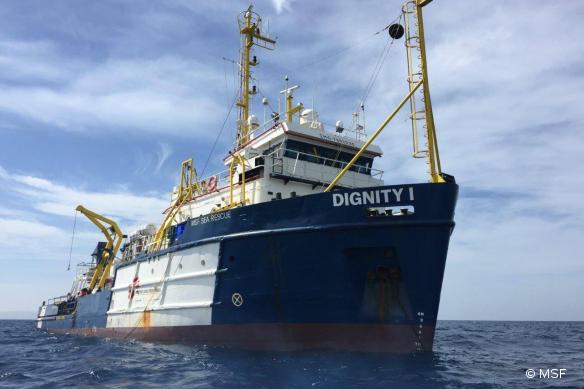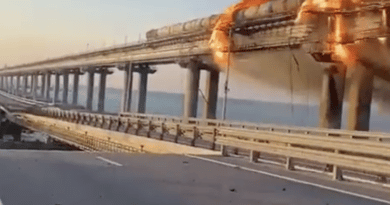The presence of NGOs off Libya: a boon effect for traffickers?

(B2) In his latest activity report, the commander of the EUNAVFOR Med Sophia operation against trafficking in the Mediterranean, off the coast of Libya, Rear Admiral Enrico Credendino, questions rather clearly the work of certain NGOs on the spot, considering that they come close to the territorial limit of 12 nautical miles and facilitate, in a certain way, the work of smugglers.
The proximity of NGOs is an incentive factor
« The increased presence of NGOs — up to 26 NGO vessels are registered on the high seas — which are ready to rescue migrants within and sometimes inside Libyan territorial waters is having an effect on the flow of migration. By being so close to the Libyan coast, the presence of NGOs makes it much easier for traffickers to recover their ships to shore, with the aim of reusing them. ».
A change of modus operandi traffickers
This close presence of NGOs reduces “ the relief average of 75 miles 35 or even 20 miles from the Libyan shore ". This has consequences on the mode of operation: “ships no longer leave with Turaya phones (NB: as at the beginning) and they no longer make distress calls to the MRCC ". The smugglers" seem very aware of where they can find relief vessels, especially NGO's, broadcasting their location via Automatic Identification System (AIS)” denounces the Italian admiral.
Incidents with the 'coastguard'
Three incidents thus involved NGOs and ships “ bearing the logo of the Libyan Coast Guard », recalls the admiral: on August 17 (read: The Bourbon Argos attacked off the coast of Libya), September 9 (read: The Werra to the rescue of nationals arrested by the Libyan coast guard) and October 21 (read: New clash with a Libyan coastguard ship? Several drowned denounce an NGO). In the first case, an MSF ship is the witness, in the other two cases, it is the German NGO Sea-Watch (1). EUNAVFOR ships were called to the rescue on two such occasions: in August and September.
(Nicolas Gros-Verheyde)
On this subject, read also: MSF responds to Frontex accusations
Read also: Mediterranean. Migrant flows reverse, smugglers adapt
(1) An NGO with whom the EUNAVFOR Med operation seems on bad terms, or vice versa

